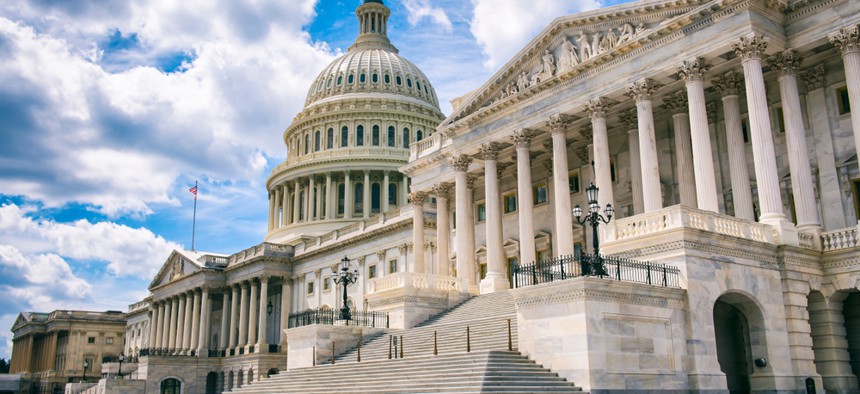What the 2017 tax law means for the future of nonprofits

U.S. Capitol building in Washington, D.C. Shutterstock
Nonprofits have widely criticized the tax law passed by Congress in 2017, which many say has discouraged charitable giving and financially burdened organizations. And the law’s provisions mean the federal government could continue to be less favorable to nonprofits by overlooking the sector while creating tax policy, said panelists at a conference on Tuesday.
“This is an example of a case where the nonprofit sector, really for the first time, is being touched by changes to the tax code that are unfavorable to it,” said Joseph Cordes, a professor at George Washington University, at the conference jointly held by the Urban-Brookings Tax Policy Center and the American Tax Policy Institute.
Organizations with greater revenue within the nonprofit sector, particularly hospitals and higher education institutions, may be particularly affected by increased taxation, panelists said.
“I think that there will continue to be targets on the backs of health care and higher education,” said Catherine Livingston, a partner at the law firm Jones Day.
Administrative problems have arisen in light of many provisions targeting nonprofits in the the Tax Cuts and Jobs Act of 2017. However, one of the most controversial provisions – an unrelated business income tax placed on nonprofits that provide their employees with transportation benefits, such as for parking and public transit – was repealed last year after lobbying efforts from the sector.
“The tax was often dwarfed by the administrative burdens placed on these organizations,” said Ruth Madrigal, a principal at the auditing firm KPMG. She also said one piece of the law – which places an excise tax on certain tax-exempt organizations deemed to give an “excess” amount to their top-paid employees – may even negatively financially impact for-profit as well as nonprofit groups.
The law has also been expected by many to discourage overall charitable giving, but official estimates have yet to come out. But if those fears are realized, it could have major financial implications for smaller nonprofits and concentrate giving among the wealthy, Cordes said.
“People have expressed concerns about that, that to the extent that you rely more and more and more on philanthropy but only from the upper echelons of the income distribution, that’s going to have a whole host of effects,” he said.
